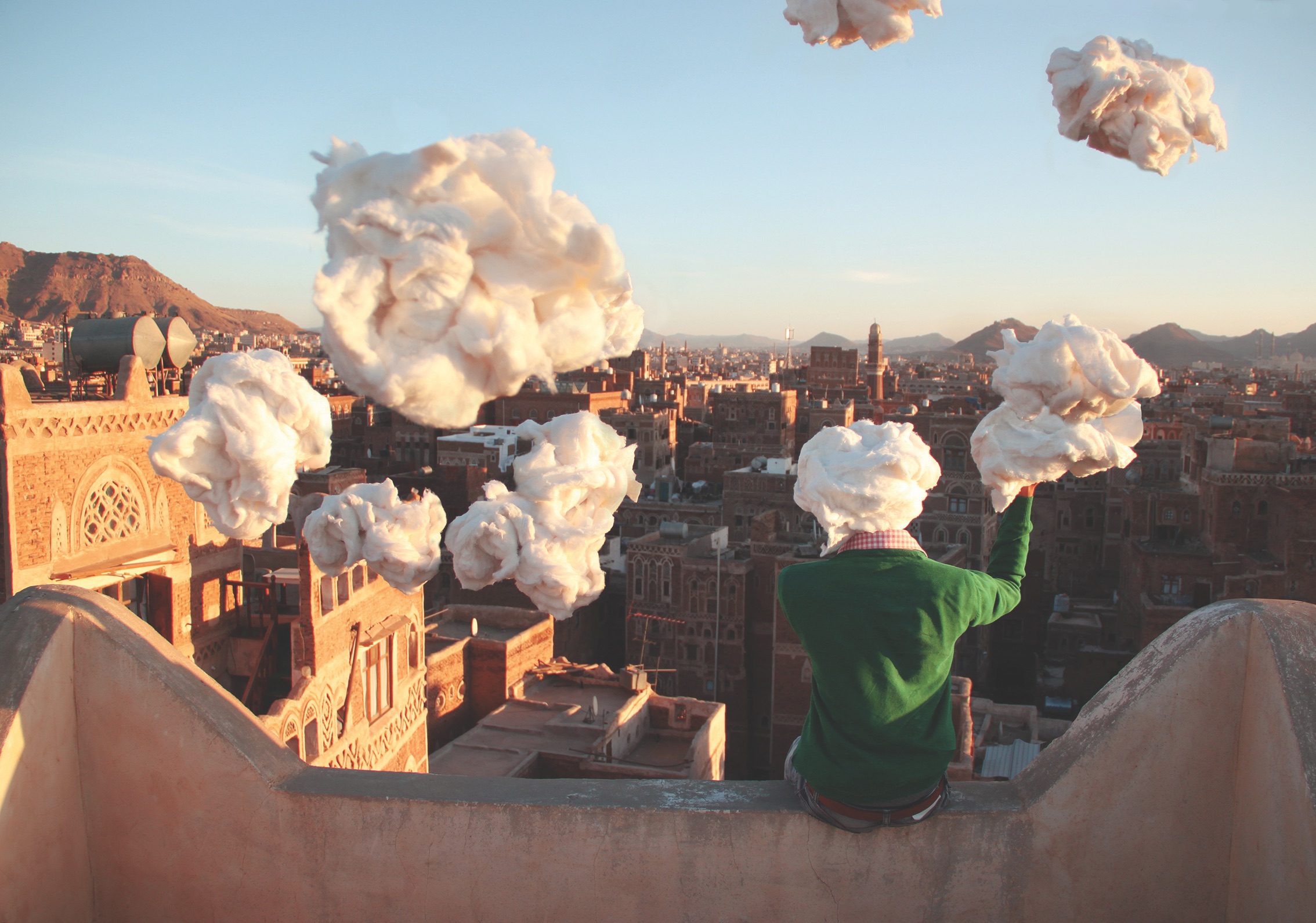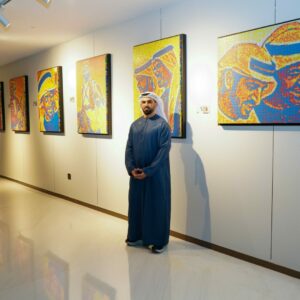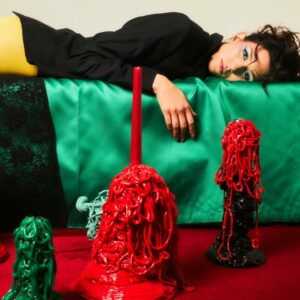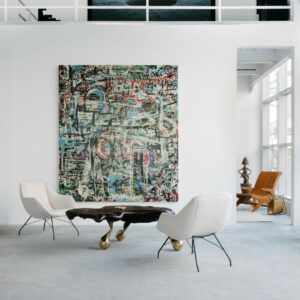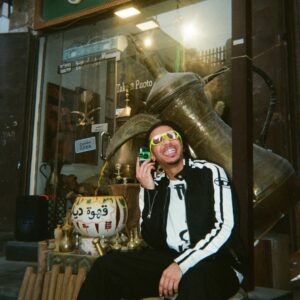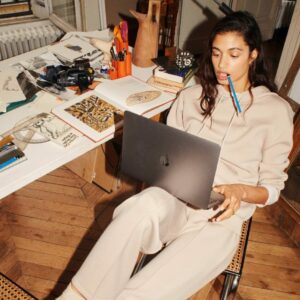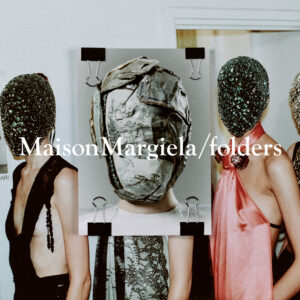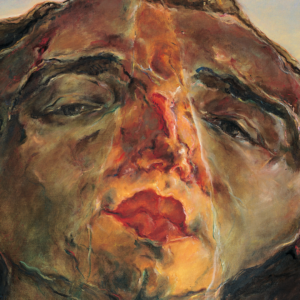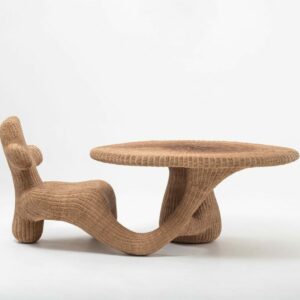The clocks ticking along at the bottom of Emergeast’s website show the time in London, Dubai, Doha and New York – a nod to the platform’s global ambitions and its spiritual roots. Launched in 2014 by Nikki Meftah and Dima Abdel Kader, Emergeast was established with the mission of creating links between emerging artists in the Middle East and collectors. Their kicker? They would do it all online – at a time when the average internet user in the region still had concerns about using their credit card in a digital sphere. Jump ahead nearly a decade and the two founders have their eyes set on their next disruption: leaping head-first into the NFT revolution.
The last time I saw you was at Art Dubai Digital. What was that experience like? Did you feel a shift in how people are perceiving NFTs?
Dima Abdel Kader: The experience was beyond our expectations to say the least! The reception towards NFTs and digital art was truly inspirational – after being behind a screen interacting with the digitally native community, seeing the curiosity of visitors new to the space IRL reflected that appetite and more. There is still a gap to be closed, but it’s more in the way of education rather than the skepticism one may think. It’s more about getting to grips with some terms associated with the space by way of realising it’s not as cryptic as you think!
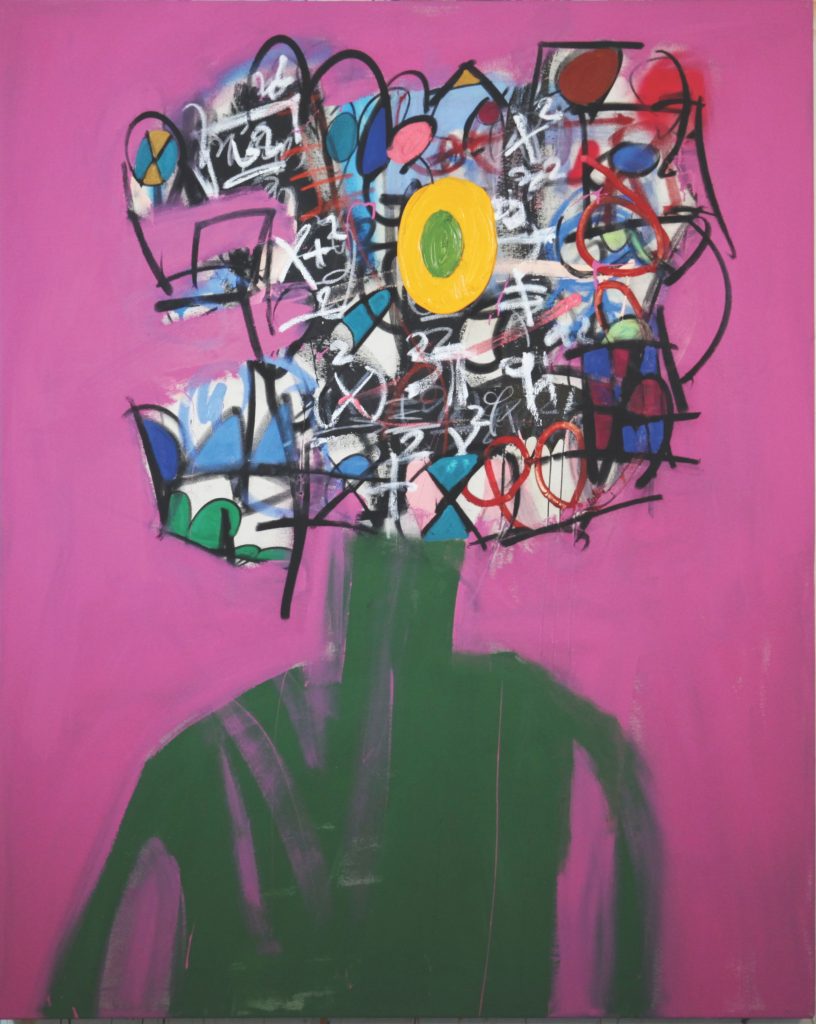
Nikki Meftah: Given the skepticism around NFT’s, Art Dubai was an opportunity to showcase the way we display and consume digital art. It was refreshing witnessing people’s skepticism turn into curiosity in a matter of minutes. While NFT’s have received tons of negative press, Art Dubai’s Digital section certainly put the million dollar ‘What do I do with an NFT’ question at bay and sparked a sense of enlightenment for the viewers. I can’t wait to see more international fairs develop a digital section. Art Dubai did a wonderful job.
You’ve been championing the meeting point between tech and art for almost a decade. I’m sure you’ve met resistance or even mockery. Most people tend to be afraid of change or cultural shifts. How was your decision to be an online-only gallery different from your decision to go into NFTs? Has the reaction to the venture been different or similar?
NM: There was certainly a lot more resistance back in 2014. The concept of art online was foreign in the region. The art world’s traditionalists felt threatened by the implications of new technology on the existing systems in place, a natural resistance met with any disruption of sorts. I remember telling someone from the art world about Emergeast before we launched and being met with ‘What on earth are you guys doing?” Ironically that statement fuelled my belief that we were onto something revolutionary. Our mission has always been to make art accessible to all through the use of technology, expanding into NFT’s seems to be a natural extension of our mission. It’s a no-brainer!
DAK: Yeah, from the perspective of the Fine Art industry, the reaction fortunately has been quite the contrary compared to when we first started. It’s propped up by the trend over the last decade of art moving online, however slowly, which got even more of a seal of approval because of the pandemic. It paved the way for art NFTs to land into a full embrace by the industry. Needless to say the crypto hype and the dollar value attached to the new market pushed its acceptance. Now, as a full circle, our start back in 2014 as a digital gallery is regarded as having been pioneering.
Everyone on earth seems to be talking NFTs, but no one can agree what an NFT is. You’re on the fine art end of the spectrum, can you explain to someone interested in this world how that’s different from what a lot of people see, sometimes dismissively, as expensive digital football stickers
DAK: Yes! My absolute pleasure! This was the essence of our conversation and narrative with the visitors to our booth during Art Dubai Digital. I say my pleasure because as a company and brand we’re really excited about how the advent of blockchain technology will change the game for the art industry for artists and collectors alike. It will be easier and markedly faster for artists and collectors to transact with each other. Now, it’s true there’s a lot of noise and blurred lines out there for what an NFT is – the easiest way I can explain this is by thinking of an NFT as a mechanism and not the medium for anything. It’s not all art, and certainly not fine art, with time the collectibles – the digital football stickers from your question – and the fine art NFTs – the pretty stuff – will diverge and find home in separate and mutually exclusive audiences. Collecting traditional or physical art and digital art will however not be mutually exclusive. We envision our collectors showcasing both digital and physical art on their walls!
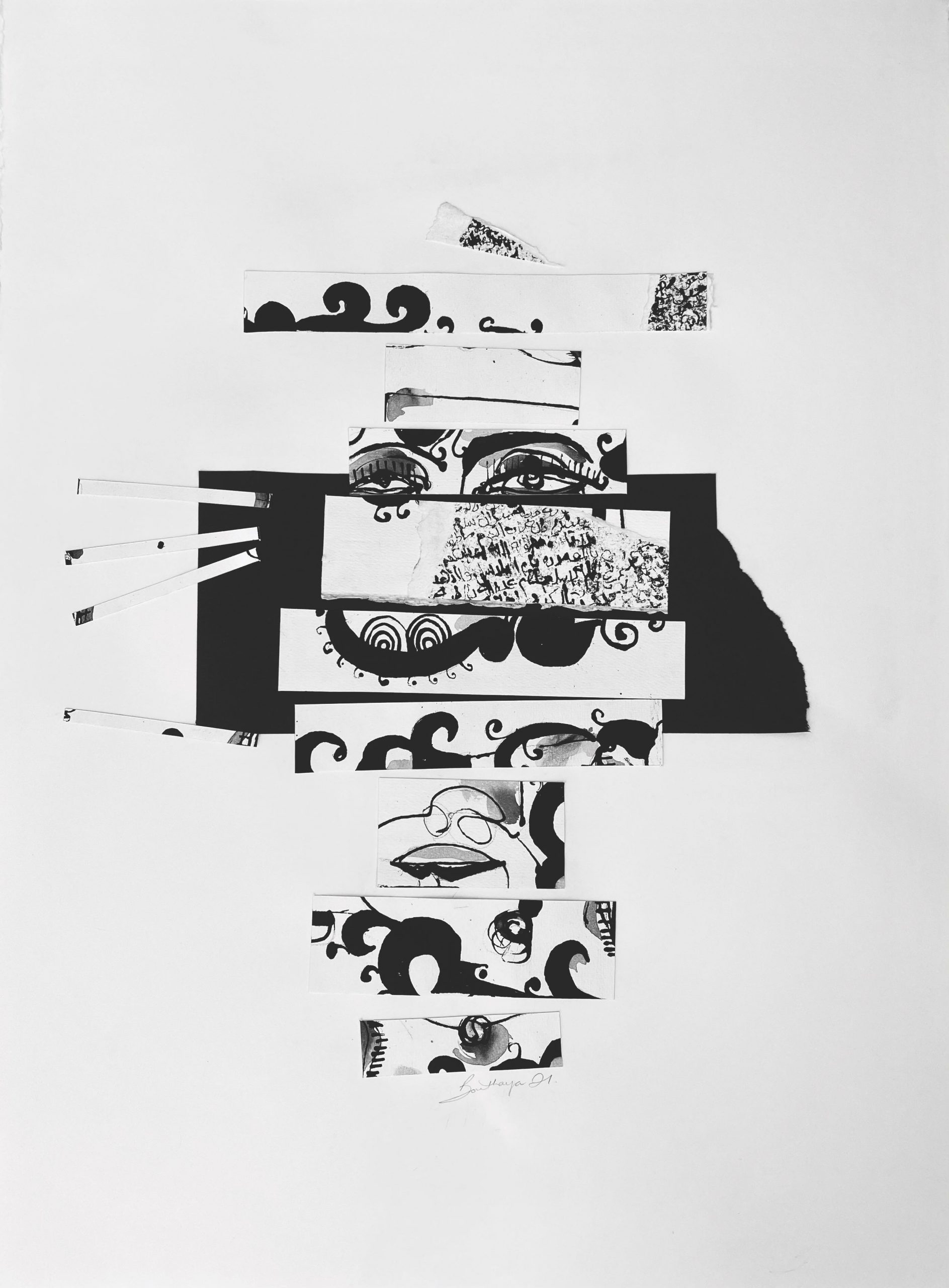
Are you worried at all about your commitment to digital art? It feels to me like you’ve gone all in on NFTs. What if they don’t work out? Or do we not jinx it by thinking that way?
NM: We’ve been big advocates of digital art since the beginning. In 2015 we hosted a live auction highlighting video animation by our digitally native artists. Although they were ahead of their time it was important for us to showcase new mediums and stay innovative, despite not being able to display and consume the medium with ease. The web3 space is totally changing that; irrespective of the volatility of cryptocurrency, the blockchain technology is offering artists and creators a new way to push out their work. Smart contracts are securing ownership and lifetime royalties for creators, few of the many benefits of NFT’s. It isn’t a matter of working out but rather a matter of how long it will take people to adopt the new technology.
Have you mainly worked with artists who were already in this space or did you convince some of your existing physical artists to join you on the adventure? Did you find they were resistant or they just needed someone to help them navigate what is still a pretty complex world
NM: Many of our digital artists naturally progressed into the space while others feel overwhelmed or are waiting for the noise to quiet down before taking a deep dive. We’ve recently been seeing traditional artists fully embracing the opportunity by working alongside animators to bring their artwork to life. It’s been incredible to be involved in this creative process with them as we help them kick start their NFT journey.
I know a big part of your mission is education. I wonder if you’ve had to educate or comfort existing collectors about this shift? Or whether the fact they tend to be younger collectors anyway meant they’re more open to digital art in the first place
DAK: There’s definitely both at play currently. Emergeast’s mission predominantly rests on using technology to disseminate art more easily and widely. Back in 2014, it was the same story. There was a comfort strategy in place due to the sheer fact that buying a piece of art online was unheard of, especially in the Middle East! The new generation were naturally more akin to ordering both necessities and luxury items from the comfort of their own home but the more traditional cohort needed more info, to put it simply. The same rings true today albeit with a few more layers given the crypto currency aspect of it. The education lies in showing existing collectors the increased plethora of art on offer now through digital tools coupled with demonstrating the ease of setting up a crypto wallet. A feature we’ve included to mitigate these steps is accepting fiat [traditional non-crypto currency] to ease collectors into the world of NFTs.
How do Middle Eastern artists stand in relation to the global digital art scene? Are people looking at the region? It seems like the medium favours people that are normally marginalised by the traditional art world
NM: The digital revolution we’re experiencing is really a time to celebrate digitally native artists who were previously marginalised due to the lack of technology and gatekeepers who weren’t recognising their work. The blockchain technology finally allows us to consume digital art in an innovative way. It’s time for these artists who have been advocating the digital to gain recognition as the pioneers of this new movement.
DAK: As blockchain technology allows for decentralisation and much more freedom, it’s safe to say artists from the MENA region, and the Global South as a whole, are receiving much attention and visibility vis-a-vis global artists. Voices are heard and creative expressions are being embraced through a transcendence, and almost absence, of borders and regional limitations.
What would you like to achieve in this space that wasn’t possible in the physical fine art world?
DAK: A full embrace of creative expression through digital tools.
NM: Meeting and working alongside web3 builders is a once-in-a-generation opportunity. The fine art world as we know it remains exclusive, something we’ve always wanted to change. Now we get the chance to create and build with like-minded people who recognise the benefits blockchain technology offers; the energy is palpable to say the least.
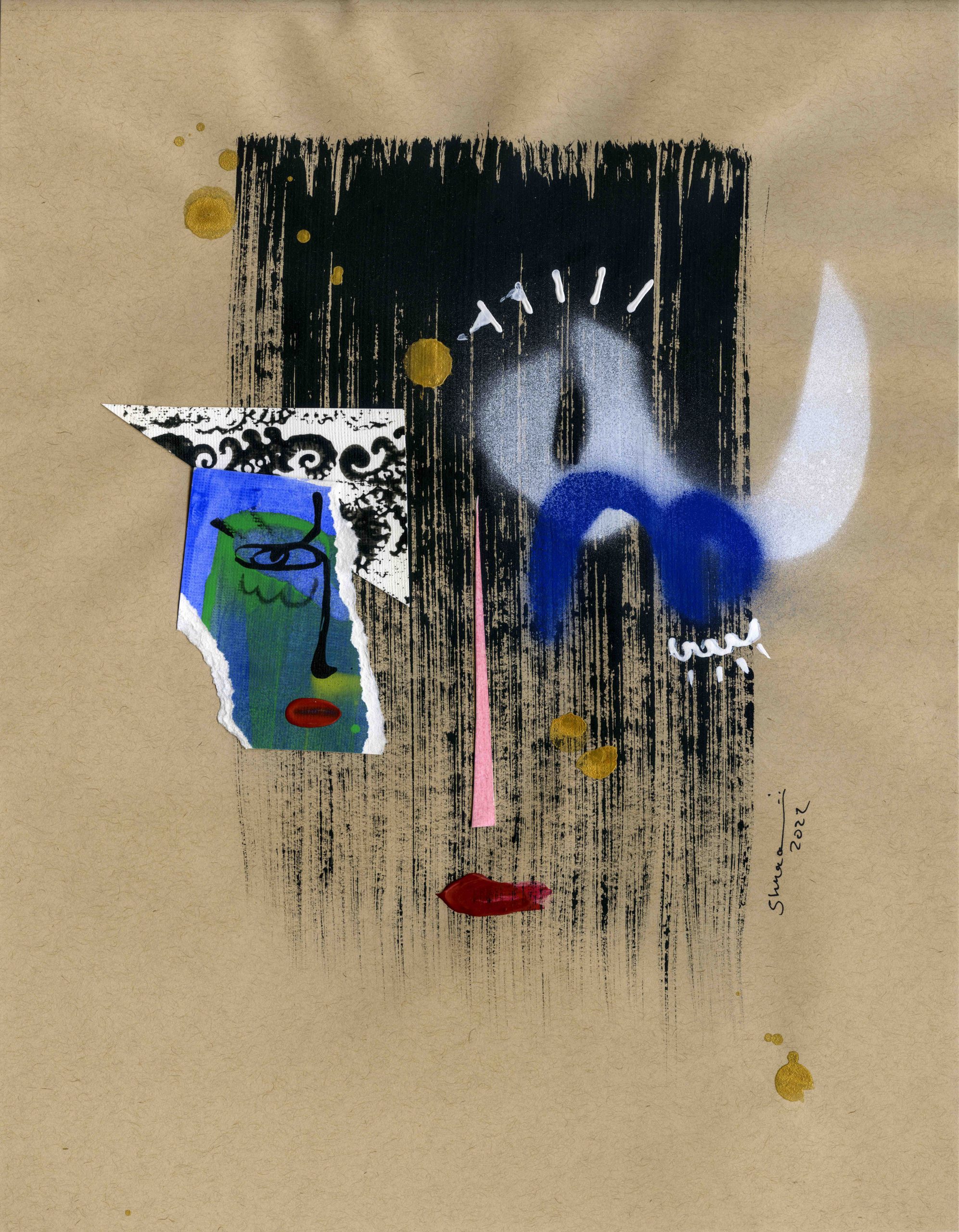
I know you can’t pick a favourite child, but is there anyone you’re particularly excited about at the moment? Even someone you don’t represent.
NM: I’m particularly excited for Parsa Mostaghim. His animations explore the space between 2D and 3D animation through a juxtaposition of mundane everyday objects and his ambiguous, raw world. He’s still so young I’m really looking forward to seeing him flourish.
DAK: This is such a difficult question. How long have we got? But ok, I’m excited that natively digital artists we’ve represented since inception are now poised to take their art to another level. Rafik Anadol who is already an established artist in the space will be an interesting one to keep an eye on as he and many others like him pave the way in the MENA/Global digital art world.
Is there one thing you think that physical art does that digital art can’t do yet? Or do you see them as two sides of the same coin?
DAK: I believe the question should be reframed to say what does digital art do that physical art can’t do as my immediate answer to your question. I don’t believe we should compare the two mediums as one fulfilling more than the other, they both serve different experiences that are unique to both artists and collectors. So, they’re two sides of the same coin. Both mediums materialise inspirations in the best way for the creator. For instance, as sculptural works realise a different experience of art, which is through space and surface compared to a 2D oil on canvas, the same parable can be attributed to physical and digital.
What is next for Emergeast? Is there anything you’re working on now you can give us a glimpse of?
NM: We’re currently building our NFT marketplace and are so excited to educate people about the space, it’s as exciting as the birth of the internet.
DAK: I’ll leave you with EMERGEAST 3.0 is on the way. Emergeast will open its virtual doors in the metaverse, see you there.
Images courtesy of Emergeast (Opening: Lalaland II, Amr Atamimi; 1. An Anxious Guest, Taher Jaoui; 2. Untitled, Lawha-Lil-Dawha Series, Bouthayna Al Muftah; 3. Al Ain Series, Shua’a Ali)
